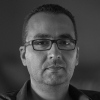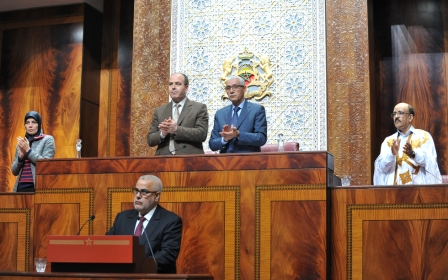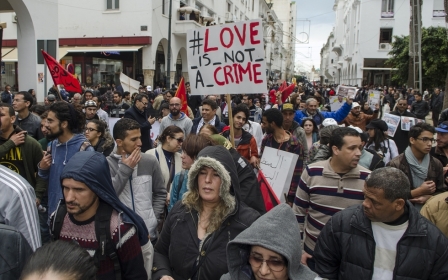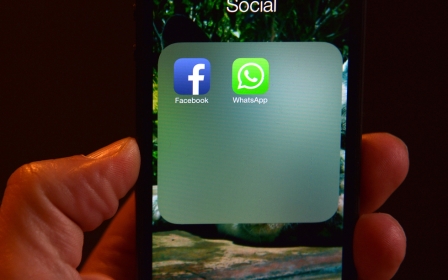Ramadan in Morocco: Intolerance in the month of compassion

CASABLANCA, Morocco - Moroccans welcome the holy month of Ramadan with compassion for those who are looking to raise their bank of good deeds, and intolerance toward others who do not want to observe fasting.
Mosques are packed with worshippers performing Tarawih prayers in the first few days of Ramadan, the Muslim calendar month when the Quran was sent down to the prophet.
Many empty shops turn into mosques to accommodate the rising number of worshippers to both the delight and discontent of local residents, while some drive far away to pray with their favourite moqri’e (prayer leader). Yet chaotic scenes are clearly visible with some irresponsible worshippers parking their cars in a manner that hampers the flow of traffic, oblivious to the repeated horns of jammed cars, making an unbearable noise in the neighbourhood.
The question is: what is the point of respecting the ethics of the mosque while disrespecting basic driving codes?
Ramadan is a month of piety, worship and good deeds, reminding those who are well off of the suffering of the poor. Indeed, charity reaches its climax as many NGOs and volunteers mobilise their efforts to distribute free iftar meals to the deprived and the sick across Morocco.
Al Wifaq association in Casablanca aims to distribute over 12,000 meals on a daily basis this year compared to some 8,000 last year. For those travelling, some restaurants offer free iftars in small villages where donors are clearly visible on the roads inviting people to join them.
Soaring prices
Back in Casablanca, Morocco’s biggest city and economic capital, popular neighbourhoods are abuzz with street vendors selling fruit, vegetables, bread and other food stuff that is going to adorn fasters’ iftar tables. However, prices of some widely consumed products such as eggs and fish skyrocket, to the dismay of clueless consumers who have used social networks to complain about this unacceptable abuse in the markets in a country whose coast stretches over 3,500km.
A protest movement was created on Facebook and a petition was launched on Avaaz calling on Moroccan Prime Minister Abdelilah Benkirane to control the soaring fish prices.
The heated debate on social networks is not new. Every year, we witness the same problem in Ramadan despite the government’s promise of a wide offer of food products at very affordable prices. The working class finds itself digging deep into its pocket in order to make ends meet in this holy month that remind us of the suffering of those less fortunate and where overconsumption and food waste are a norm in most households and spirituality becomes trivial.
Amid the government’s impotence to control prices, Moroccan households are forced to increase their food budget during Ramadan, which reaches over 37 percent of their total spending budget. This increase in food expenditure affects all categories of the population, according to the High Planning Commission.
Ramadan is a month of restrictions on individual freedoms for some Moroccans.
Non-fasters
Arrests of non-fasters are making headlines, prompting a heated debate about the controversial issue which returns to the spotlight in every Ramadan.
It all started seven years ago when the Alternative Movement for Individual Freedoms (MALI) provoked a major controversy after trying to organise a group lunch in public in Ramadan in defiance of Article 222 of Morocco’s penal code.
The article stipulates that “whoever, notoriously known for their adherence to the Muslim religion, ostensibly breaks the fast in a public place during the time of Ramadan, without grounds permitted by this religion, is punishable by imprisonment of one to six months and a fine of 200 to 500 dirhams (almost 20 to 50 US dollars).”
This article was written six years after Morocco’s independence from France in 1961 when French magistrates were still influential and played a major role in writing the penal code. It entered into force in June 1963.
Fifty-five years later, Article 222 is still strongly implemented despite the fact that Article Three of the Moroccan Constitution stipulates that “Islam is the religion of the state which guarantees everyone the free exercise of religion.” This means that not fasting is not a crime.
However, many people have been arrested since the start of Ramadan for eating or smoking in public. Two young men, who work as merchandise carriers in a local market in Zagora, got a suspended prison sentence of two months for drinking water in public on a scorching hot day.
'Outdated' law
In one case, a diabetic man (who - according to Islamic teachings - should not be fasting if it harms his health) was assaulted by passers-by for drinking in public.
Campaigners for individual freedoms held a sit-in near the parliament in Rabat on Saturday night to call for the abolition of what they called “outdated” Article 222.
Ahmed Raissouni, former head of the Oneness and Reform Movement (MUR), the ideological arm of the Justice and Development Party (PJD), called for the repeal of Article 222 at a conference in Qatar.
Raissouni’s call is a major blow to conservatives who urge the authorities to strictly apply the law and punish those who infringe it.
Raissouni argued that fasting is more a matter of freedom of conscience of each individual and should in no case be subjected to a police investigation or a conviction in court.
While Morocco boasts of being a country of peace, tolerance and coexistence, the majority of arrests of non-fasters are carried out following tip-offs from locals to the police.
It seems that the intolerance in Ramadan has been reinforced and normalised at the expense of individual freedoms, and minorities who are forced to adhere to an obsolete law that does not reflect the image of a modern Morocco which treats all its people as equal no matter what their religious affiliation is.
Ramadan’s days are numbered, but the controversy around Article 222 is here to stay.
- Saad Guerraoui is a senior editor at Middle East Online and regular contributor to the Arab Weekly newspaper. He graduated from Newport University (London Campus) with a PhD in Business Administration. He has appeared on various satellite TV channels as an analyst.
The views expressed in this article belong to the author and do not necessarily reflect the editorial policy of Middle East Eye.
Photo: Empty seats are seen outside a cafe in Rabat, on 10 August, 2012 (AFP).
New MEE newsletter: Jerusalem Dispatch
Sign up to get the latest insights and analysis on Israel-Palestine, alongside Turkey Unpacked and other MEE newsletters
Middle East Eye delivers independent and unrivalled coverage and analysis of the Middle East, North Africa and beyond. To learn more about republishing this content and the associated fees, please fill out this form. More about MEE can be found here.





